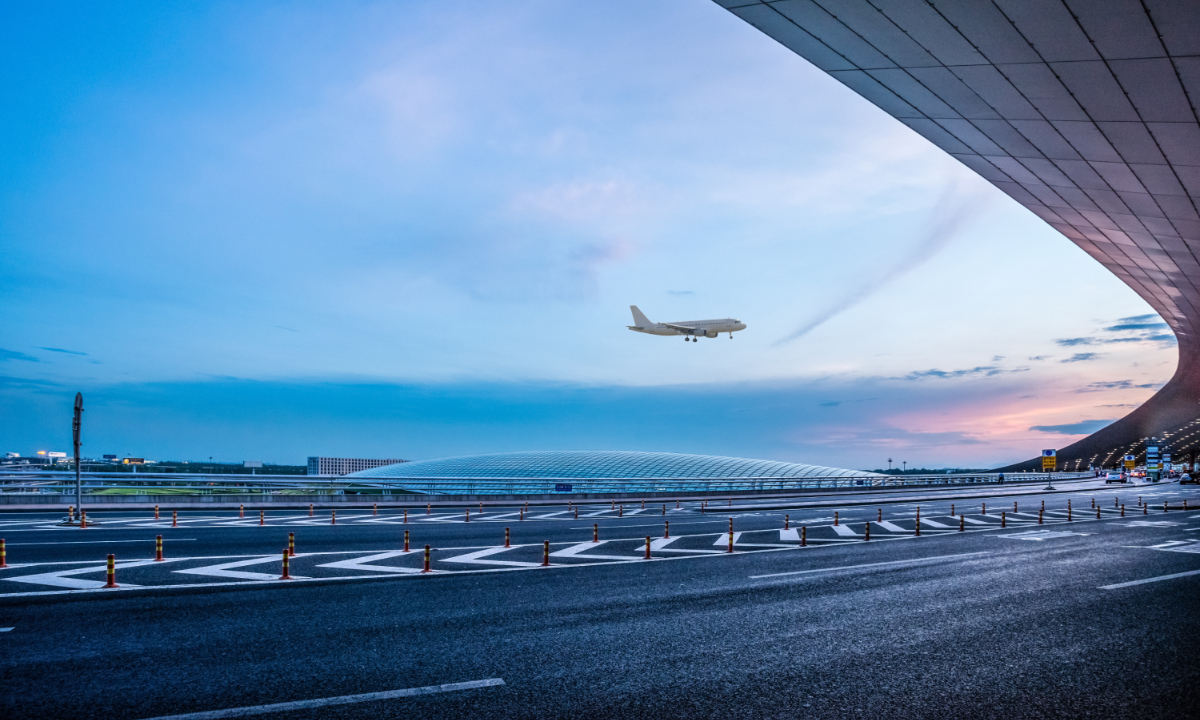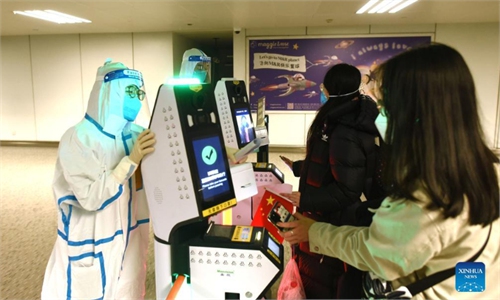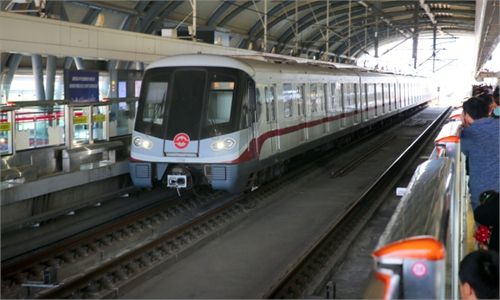
Beijing airport Photo: VCG
In a move that experts said will diminish the impact of COVID-19 controls on international exchanges and domestic mobility, at least eight Chinese cities have curtailed centralized quarantine periods for international arrivals from 14 days to 10 or seven days, Chinese embassies have streamlined visa applications for foreigners, and certain cities have let their guard down for travelers from previously COVID-hit cities such as Beijing and Shanghai.
The latest to shorten quarantine periods for international arrivals is Nanjing, East China's Jiangsu Province. An employee from the government's hotline service confirmed with the Global Times on Monday that it has cut the centralized quarantine period in half to seven days for international arrivals, and this policy has been in place for almost two weeks.
An additional seven days home quarantine rule remains in place, he said.
Cities of Wuxi, Changzhou in Jiangsu have done the same, the Health Times under People's Daily also reported on Monday.
The Global Times previously learned that cities such as Beijing and Wuhan, Central China's Hubei Province have shortened quarantine periods for international arrivals on a trial basis, to seven days of centralized quarantine and another seven days of home quarantine.
International arrivals are subject to 10 days of quarantine when they arrive in the cities of Chengdu in Southwest China's Sichuan Province, Xiamen in East China's Fujian Province and Ningbo in East China's Zhejiang Province, the Global Times learned on Monday.
Several other cities, including Guangzhou, Qingdao, and Xi'an, still stick to the policy of 14 days of centralized quarantine for international arrivals, the Global Times learned on Monday.
Shortening the time for collective quarantine is being done because it takes seven days on average for the Omicron variant to leave the human body, said an expert from the Chinese Center for Disease Control and Prevention (CDC), who asked for anonymity, calling it a "more balanced virus prevention measure to alleviate the impact of virus prevention on exchanges with other countries."
Chinese embassies in many countries, including France, Nigeria and Indonesia, also streamlined visa application procedures for foreigners. Those who are coming to work in China and have been approved by relevant Chinese departments don't need to present a letter of invitation when applying for a work visa.
Family members with foreign nationalities also are exempt from submitting letters of invitation when coming to visit their relatives who work in China.
Those embassies' policies took effect on Monday.
The Civil Aviation Administration of China said on Friday that it is negotiating with some countries to gradually and steadily increase regular international passenger flights to meet the needs of personnel exchanges.
Within China, some cities are beginning loosen the guardrails for people traveling from high-risk areas, for instance, Beijing and Shanghai, which have previously been hard hit by Omicron.
Recently, a number of cities in East China's Jiangsu Province have resumed daily commuting services to and from Shanghai and eased quarantine measures for travelers from the neighboring megacity. Jiangsu cities such as Nanjing, Wuxi and Yangzhou even dropped collective quarantine for people from Shanghai's low-risk areas, only asking them to do frequent tests after arrival.
For travelers from Beijing, which is just recovering from a bar-related flare-up, some cities are making policies targeting different areas, and avoiding a one-size-fits-all approach. A government employee from the Chengdu health authority told the Global Times that since June 13, arrivals from the capital's Chaoyang district, the epicenter of the latest outbreak, should be subject to a seven-day home quarantine, while others are free to go.
Cities such as Chongqing and Xi'an followed suit with stricter rules only on travelers from the Chaoyang district.
The CDC expert said all those relaxations of policies are based on the fact that the incubation period of the Omicron variant is shorter and to lighten the burden of COVID-19 controls on society and people's lives.
"It's a process of gradually accumulating experience," he said.



